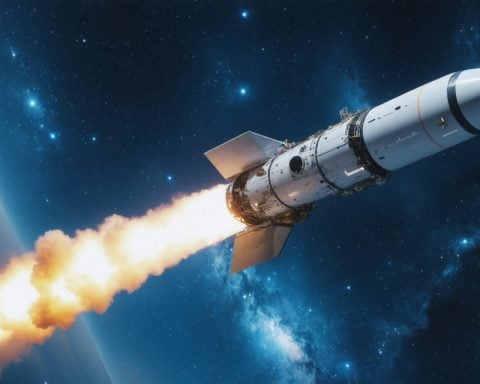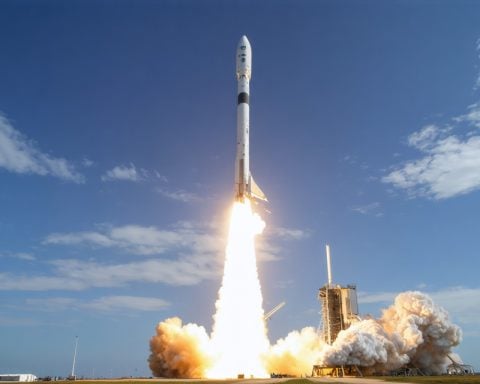A Japanese startup, Space One Co., has faced another disappointment in its mission to become a pioneer in Japan’s private space industry. On Wednesday, their Kairos No. 2 rocket experienced a mid-flight abort, marking the company’s second consecutive launch failure from the country’s only commercial spaceport, Space Port Kii in Wakayama Prefecture.
The 18-meter rocket, powered by solid fuel, took off under promising conditions despite initial weather-induced delays. Originally slated for a Saturday launch, adverse winds pushed the schedule back twice, holding high hopes for the five satellites it was carrying. These satellites, owned by various groups, including the Taiwan Space Agency and Japanese tech firms Space Cubics LLC and Terra Space Inc., were intended to be deployed into orbit, a milestone that could have significantly boosted Japan’s emerging space sector.
Unfortunately, this setback echoes the company’s inaugural launch in March, which ended in a fiery explosion post-liftoff due to flawed propulsion calculations. Aspiring to revolutionize satellite deployment, Space One was established in 2018, backed by major players like Canon Electronics Inc. and IHI Aerospace Co. Its ambitious goals include rapid launch turnover and maintaining a high frequency of launches, aiming for up to 30 per year by the 2030s.
This latest incident highlights the challenges young aerospace enterprises face as they strive to lower costs and increase access to space amidst burgeoning global demand.
Challenges and Innovations in Japan’s Private Space Industry
The Japanese startup Space One Co. recently encountered another setback as they strive to solidify their position within Japan’s burgeoning private space sector. Their latest attempt to launch the Kairos No. 2 rocket culminated in a mid-flight abort, marking the firm’s second failed mission from Space Port Kii in Wakayama Prefecture. This setback underscores the challenges faced by emerging aerospace companies in balancing innovation with reliability in a highly competitive global market.
Innovations and Aspirations
Despite the recent mishap, Space One Co. has been pushing the frontier of space exploration within Japan. Established in 2018, and supported by notable entities such as Canon Electronics Inc. and IHI Aerospace Co., the startup aims to revolutionize satellite deployment with a focus on rapid and frequent launches. Their ambitious plan includes launching up to 30 rockets per year by the 2030s, signifying a potential shift in Japan’s approach to space commercialization.
Market Trends and Insights
The failure of Kairos No. 2 reflects broader trends in the global space industry, where private companies strive to reduce costs and increase access to space. The demand for satellite deployment services is rising, driven by a global appetite for enhanced communication, navigation, and earth observation capabilities. This is setting the stage for increased competition and collaboration among space startups worldwide.
Use Cases and Limitations
Space One Co. initially planned to carry out the orbital placement of five satellites for various organizations, including the Taiwan Space Agency and Japanese tech firms such as Space Cubics LLC and Terra Space Inc. These missions are crucial for advancing technological capabilities, scientific exploration, and commercial applications, although they highlight the inherent risks and technical challenges in space endeavors.
Predictions and Future Directions
Looking ahead, Space One Co., and similar ventures may drive innovations that could pivotally impact the economics of space access. Embracing adaptable launch strategies, fuel-efficient propulsion technologies, and collaborative partnerships may propel them toward becoming leading figures in space transportation.
For more detailed insights on Japan’s space initiatives, consider visiting the [Japan Aerospace Exploration Agency](https://www.jaxa.jp) website.







